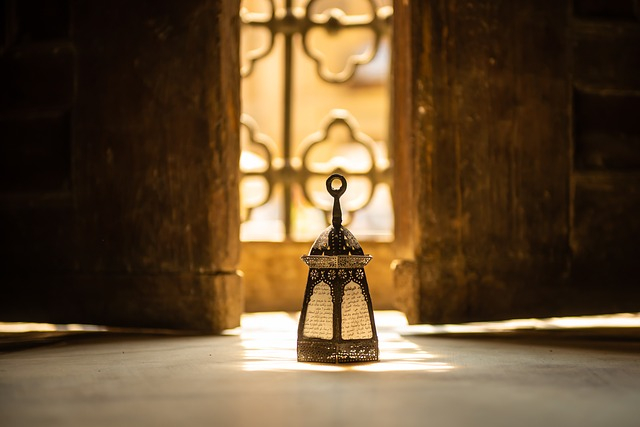Focusing on Forgiveness & Connection in the Second Ten Days of Ramadan
Faith
|
Apr 23, 2021
|
5 MIN READ

Image source: RODNAE Productions from Pexels
And just like that, one-third of Ramadan is now behind us as we usher in the second 10 days of the holy month. The first ten days tend to go like that – super fast and with great promise and enthusiasm. Now, we’re in the days of Allah (S)’s forgiveness, which is there for us to seek always. But especially now. It isn’t just coincidence that in the middle of our fasting month, when things may start to get tough, the opportunities for His forgiveness are infinite.
At this point, we’ve embraced the fasting, the adjusted sleep schedules, and perhaps some nightly worship. For some, you may start feeling your initial zeal for Ramadan wane a bit – it’s but natural. In a conversation I was having with my sister-in-law, sometimes things start to feel repetitive and exhausting: Get up, eat suhoor, read some Quran, go to work or take care of your family (or both), pray, prepare iftar, break fast, pray tarawih. I often find the second ten days to be when I feel a little less connected although I am trying to do all the things.
For others, you may have given up, feeling like a failure for not doing much in Ramadan yet.
Do. Not. Despair.
Do not get caught in the trap of self-imposed guilt or shame – you are still here, Ramadan is still upon us, and more importantly, Allah (S) is still here.
And He’s waiting for you. He wants to forgive you. He wants you to draw close to Him. Sometimes that connectedness we are seeking feels so elusive. Why does it feel like others around us have that “Ramadan feeling?” Why are they beseeching Him so fervently while you may struggle to feel Ramadan and seek Allah’s (S) forgiveness for whatever it is you need forgiving?

Image source: Jose Aragones from Pexels
Ustadha Maryam Amir writes:
“Many of us may feel the month is going by without our tasting its sweetness. We have not yet cried our hearts out to Him like we may want. But a lack of tears from the sweetness of eman is not an indicator of a lack of faith.
"God tells us in a holy hadith: “My servant draws not near to Me with anything more loved by Me than the religious duties I have enjoined upon him, and My servant continues to draw near to Me with supererogatory works so that I shall love him…”
"He does not say: “You draw close to Me through a feeling you get.” He does not demand we cry out of love for Him everyday, even if that is what we want to do. Allah is empowering us to take action in managing our side of our relationship with Him.
"Someone I deeply respect told me she has been praying regularly for 40 years and in that time she has connected emotionally sometimes, but sometimes she hasn't at all. But the feeling or lack thereof doesn't inform whether or not she continues to pray. She still prays. And perhaps that's the point.
"Will you still do it when it doesn't taste sweet? Will you still do it when you're not on an eman high? Or will you, instead of wondering how you can work on yourself, decide you don't feel anything anyway so there's no point?
"We absolutely try and deeply desire that emotional sweetness and those tears brimming from Eman. But not experiencing that does not indicate failure. And doing the obligations and extra no matter what state we are in emotionally shows a dedication, a persistence, a willingness to fight for this relationship, to prove our love through our actions.
"You can do that. You can show Allah how much you love Him. Raise your hands and ask Him to taste the sweetness of eman. But show Him you don't worship a feeling. You worship Him.”

The sweetness of Ramadan is in front of us to taste. In every act of worship – whether prayer, fasting, caring for others, giving in charity, reading Quran, doing something for someone else – we have the opportunity to please Allah (S) and beg for his forgiveness. Oh Allah (S), I do this for Your sake, to please you.
Now’s the time to dig deep and tap into your inner strength. Remember, we are in the Days of Forgiveness now. It’s never too late to start afresh and seek forgiveness. Allah (S) says in the Quran:
Say, "O My servants who have transgressed against themselves [by sinning], do not despair of the mercy of Allah. Indeed, Allah forgives all sins. Indeed, it is He who is the Forgiving, the Merciful." (39:53)
We might feel unworthy of Allah (S)’s forgiveness – but, dear sisters, that’s not for us to decide. Allah (S) has already decided that you ARE worthy, and He invites us time and time again back to Him, no matter how weighty our sins. He invites us to taste that sweetness of connection with Him.
So how does one repent and seek Allah (S)’s forgiveness? Our writer Layla covers that in depth, along with du’as for seeking forgiveness from the Quran, here. You must acknowledge your transgressions, feel remorse and regret over them, and resolve to change and not repeat the sins. Then, turn to Allah (S) and literally ask for forgiveness. And here’s the important part: Resolve (really resolve) to do better. Make that sincere effort to correct or improve whatever it is you are seeking forgiveness for. Try your best to pray your prayers on time and take advantage of this beautiful month to reset and reconnect with Allah (S).
Here’s a great du'a you can say when seeking Allah (S)’s forgiveness:
Allahumma-ghfir li dhanbi kullahu, diqqahu wa jillahu, wa awwalahu wa akhirahu, wa 'ala niyatahu wa sirrahu
O Allah! Forgive me all my sins, great and small, the first and the last, those that are apparent and those that are hidden. [Muslim 1:350]
May Allah (S) forgive us of all sins, may we feel the sweetness and strength of our connection to Him, and may He make us of the righteous, Insha’Allah!
I want to share the byline for this piece with my fabulous friend and team mate, Noor Suleiman, who contributed a lot to this post.
Subscribe to be the first to know about new product releases, styling ideas and more.
What products are you interested in?

